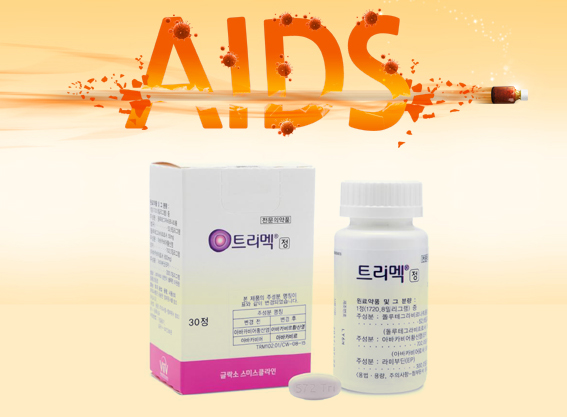GSK has released Triumeq Tab. to treat human immunodeficiency virus(HIV), drawing market watchers attention whether the new drug featuring ease of use will change the market trend in Korea which has a strong bias against AIDS.
Gilead길리어드, which has market-leading treatment Stribild Tab., is about to switch to Genvoya Tab. with fewer side effects.
GSK is emphasizing patients has only to take one Triumeq a day regardless of meals. The company thinks ease of use has great significance in Korea, given the social atmosphere that makes patients extremely reluctant to make public their infections.

"Prejudice and bias against HIV are severe in Korea compared with foreign countries,” a GSK official said. “People in their 20s to 40s, who have to maintain the most active interpersonal relationship, account for 76 percent of HIV/AIDS patients here. Unlike other drugs, Triumeq shows efficacy with just one pill a day with or without meals.”
GSK expects such an ease of use will provide a useful option for new patients and prescription change, given the strong social prejudice against the disease has emerged as an obstacle hindering drug compliance.
A survey of 104 HIV-infected people by Korea HIV Stigma Index Joint Research Group last month showed many patients have the sense of shame (51 percent), self-reproach (75 percent), and guilt (64 percent).
"Continuity of treatment is the most important factor in treating HIV/AIDS. Once patients start anti-virus treatment, they have to continue to take drugs and check the number of CD4 cells and virus titer on a regular basis,” the group said. “If infected people feel it shameful or burdensome from visiting hospitals or taking medicines and stop the treatment, not only will their health fall in danger but the disease will highly likely spread.”
Aside from ease of use, GSK is stressing the high barrier to drug tolerance as Triumeq’s advantage, noting that the drug hasn't shown tolerance in clinical trials so far.
The Triumeq group didn’t demonstrate tolerance in 144-week single clinical trials for patients who had never taken the drug, but its control group that used Efavirenz showed tolerances in one patient with reverse-transcriptase inhibitor (NRTI) and six patients with non-nucleoside reverse transcriptase inhibitors (NNRTI).
In the 48-week SPRING-2 clinical trials, 5 percent of participants showed tolerance to NRTI in the raltegravir group, and 20 percent in the integrase inhibitor.

